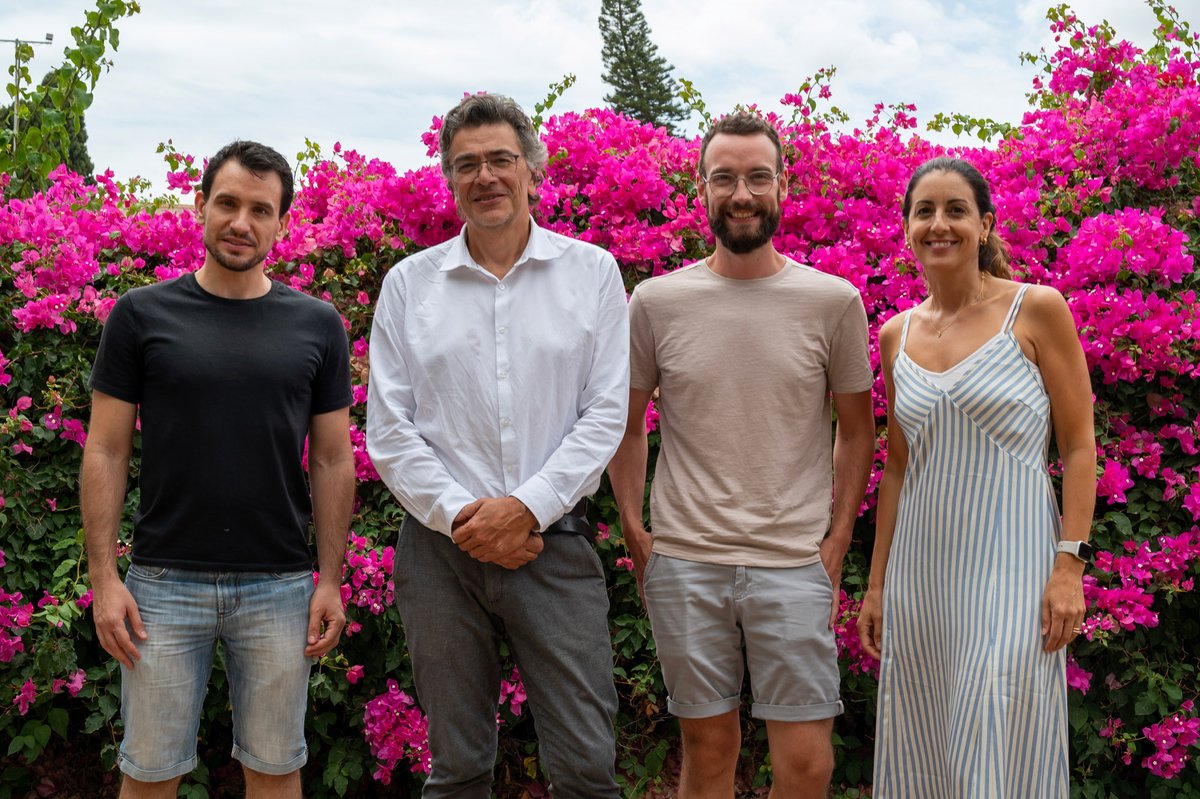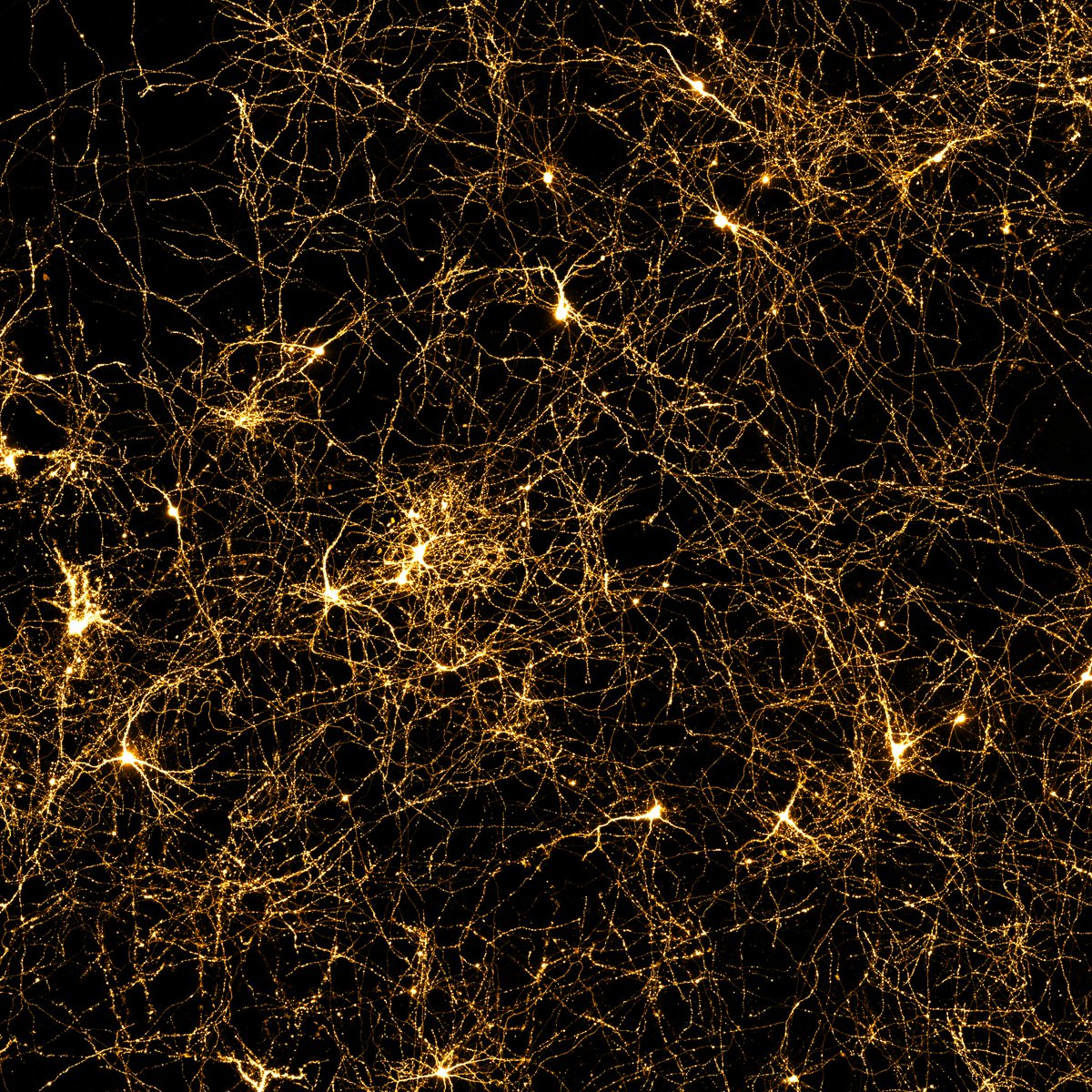
Miguel Fuentes Ramos
@miguelfr92
PhD student in @BarcoLab
ID: 1628360113
28-07-2013 17:18:37
58 Tweet
85 Followers
192 Following



🔥A new study led by BarcoLab at Instituto de Neurociencias UMH-CSIC is now published on Nature Communications 🙌 Researchers have determined the role of the Kdm1a protein in maintaining the neuronal identity and relationship with age progression More info 👇 in.umh-csic.es/en/articulos/k…


A new study led by Alerie Guzman de la Fuente from Instituto de Neurociencias UMH-CSIC ISABIAL MyelinAlicante & Denise Fitzgerald from Queen's University Belfast 🎓 Wellcome-Wolfson Institute Experimental Medicine is now on Nature Communications 🙌 They confirm that ageing reduces the ability of regulatory T cells to enhance myelin regeneration More info 👇 in.umh-csic.es/en/articulos/a…

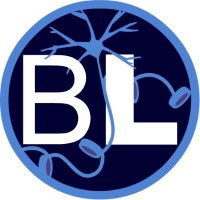
🎉Exciting news🎉 Our communication office at Instituto de Neurociencias UMH-CSIC has released a YouTube video unpacking the main findings from our latest publication: uncovering the pivotal role of Kmd1a in preserving neuronal identity. Dive into our research! Watch it! 🎥 rb.gy/zgnh0r

🎉 Enhorabuena al recién nombrado hoy Dr. Adrián Portalés Montes por su defensa de #TesisIN y felicitaciones a su directora de Tesis, la Dra. Sandra Jurado SJurado_LAB🎉
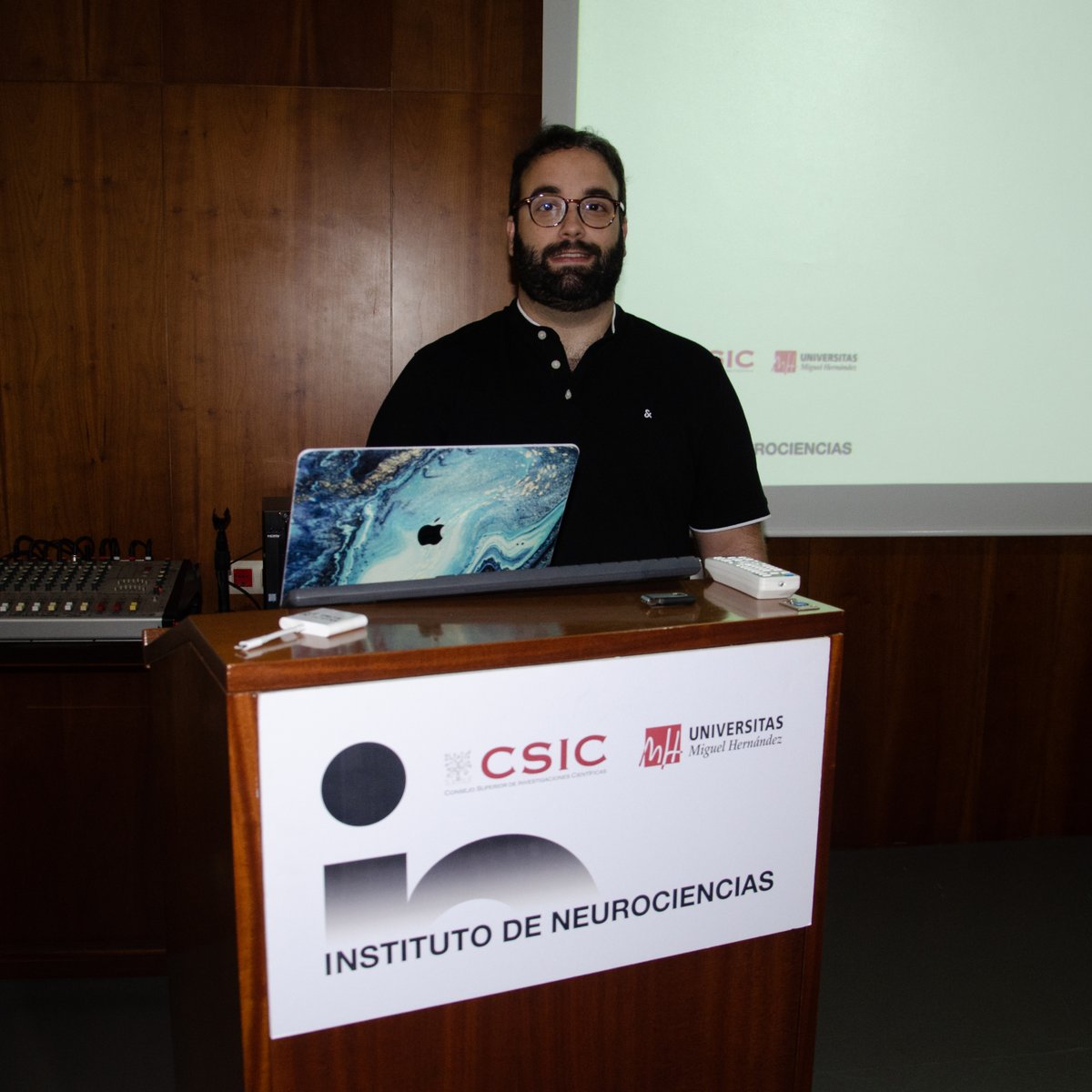

🎉 Enhorabuena a la recién nombrada hoy Dra. Marta Alaiz Noya Marta Alaiz Noya por su defensa de #TesisIN y felicitaciones a sus directores de Tesis, el Dr. Angel Barco y la Dra. Beatriz del Blanco Pablos Beatriz del Blanco Pablos BarcoLab🎉


📣We're excited to share our latest review article on the role of epigenetics in the etiology of ASD! Check it out here: shorturl.at/qMZ7E Don't miss it! 📸 Trends in Molecular Medicine
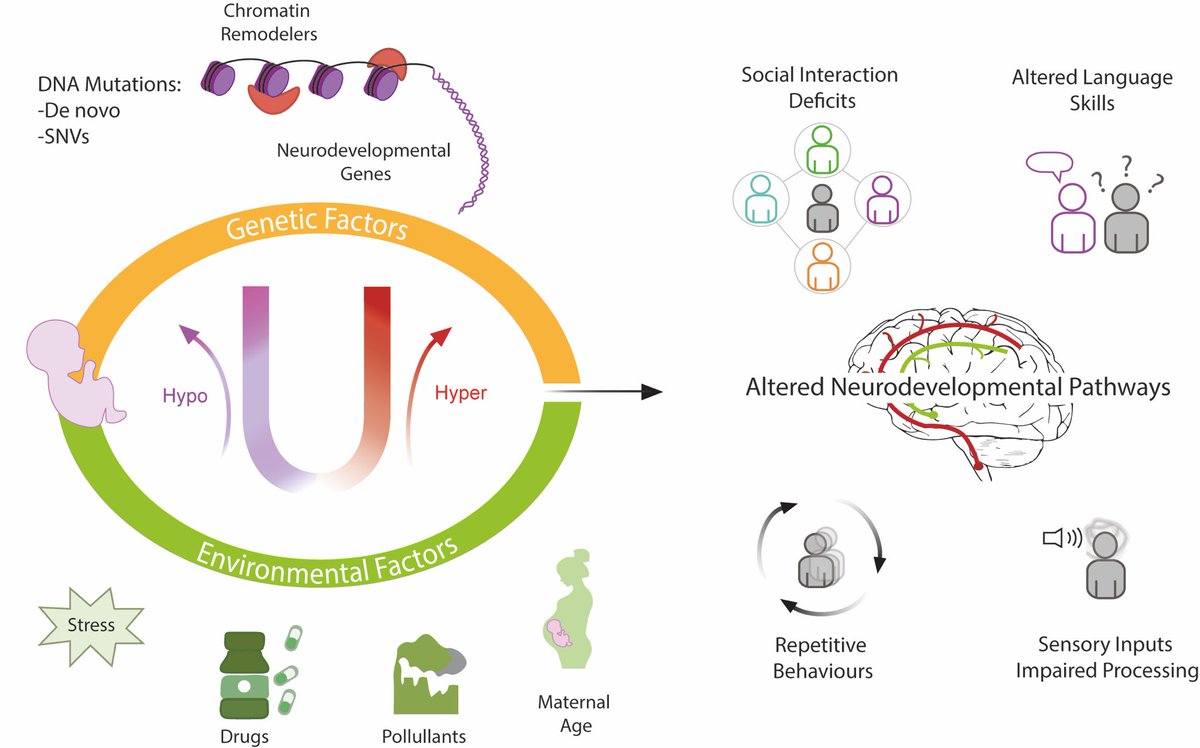

Take a look at our latest book chapter on Engrams! Angel Barco and Miguel Fuentes Ramos have collaborated with other renowned researchers to compile the latest advances on engrams. Their chapter focuses on the underlying transcriptional and epigenetic mechanisms. link.springer.com/book/10.1007/9…
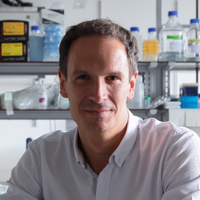
And it's a book! Together with Steve Ramirez, we have gathered some of the leading experts in the field who have generously contributed with a chapter of what has become the first ever book on #engram biology! 📖🔥🧠Come take a look! ⬇️⬇️⬇️ link.springer.com/book/10.1007/9…


‼️ 📣 We have just published our preview of the work from Eric J. Nestler, MD, PhD lab in Neuron studying the role of H3K27me1 in mouse stress resilience to adult social defeat stress and early life stress. Rafalcala Instituto de Neurociencias UMH-CSIC Neuron Check it out here: authors.elsevier.com/a/1jixA3BtfH9A…

🎉Celebrating 20 years of Barco's laboratory! 🧬 A heartfelt thank you to everyone who has contributed with passion, dedication, and hard work over the years. Here’s to many more years of exciting science ahead! #BarcoLab20years Instituto de Neurociencias UMH-CSIC

📣WE ARE HIRING📣 We are looking for a laboratory technician to work with us in the Laboratory of Transcriptional and epigenetic mechanisms of neuronal plasticity based at the Instituto de Neurociencias UMH-CSIC. 🔽Check it out! 🔽
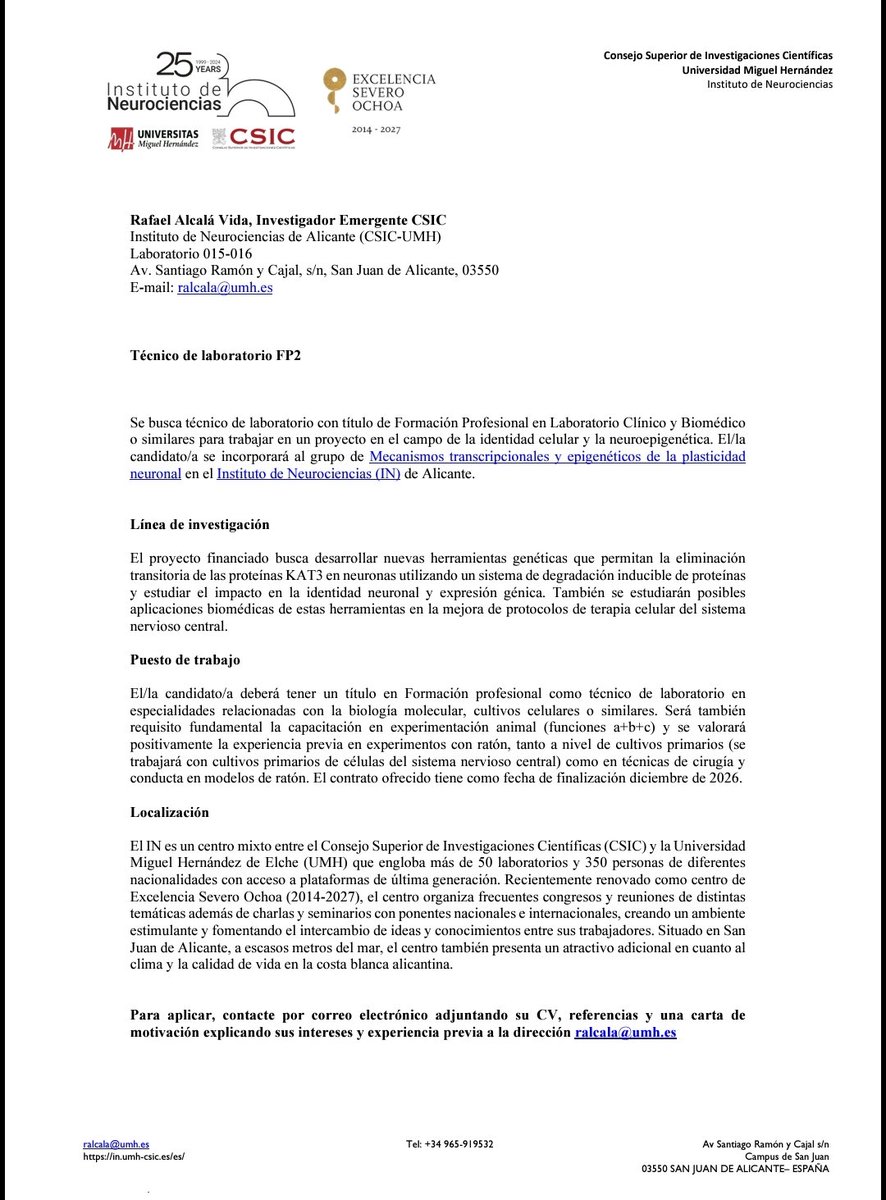

We’re thrilled to see our image on the cover of Trends in Molecular Medicine! The image highlights the crucial role of epigenetics in the etiology of ASD. Many thanks to @IsraelMGuerrero for his collaboration on the design! shorturl.at/beZqP
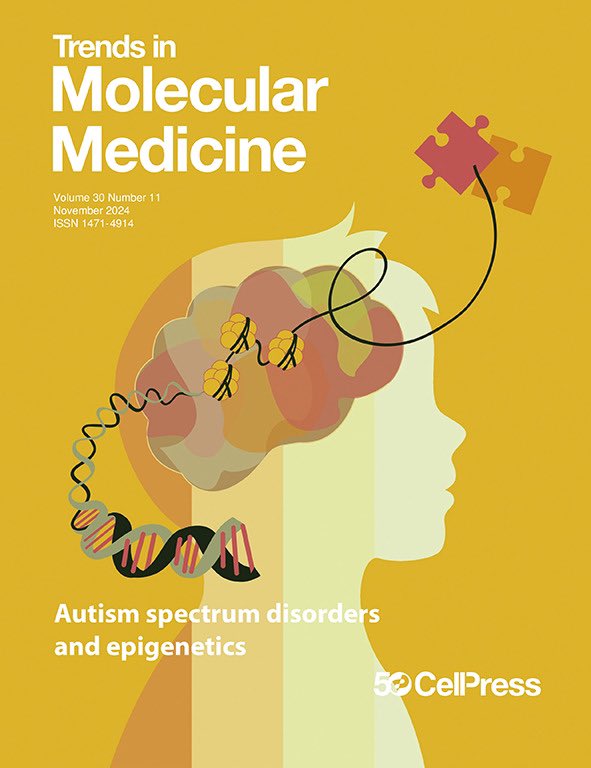


2/2 Our chapter focuses on the impact of new genome-wide technologies and their application in studying activity-driven transcription. Don’t miss it! shorturl.at/Hqzve Instituto de Neurociencias UMH-CSIC Sergio Niñerola #BarcoLab #Neuroscience

Congratulations to our colleague Federico Miozzo 🇪🇺🇺🇦 for the publication of this paper!!


New review out with Aysha The FEBS Journal. We discuss how dysregulated type-I interferon signalling affects brain function, with a focus on the IFN-responsive state of microglia in development and neurodegeneration. Experimental work coming soon, stay tuned! febs.onlinelibrary.wiley.com/doi/10.1111/fe…

🔥A new study led by BarcoLab at Instituto de Neurociencias UMH-CSIC is published on Cell Reports 🔝 Researchers show that the enzymes KDM1A & KDM5C act as epigenetic guardians, silencing inappropriate genes to keep neuronal identity. More info 👇 in.umh-csic.es/en/articulos/c…
